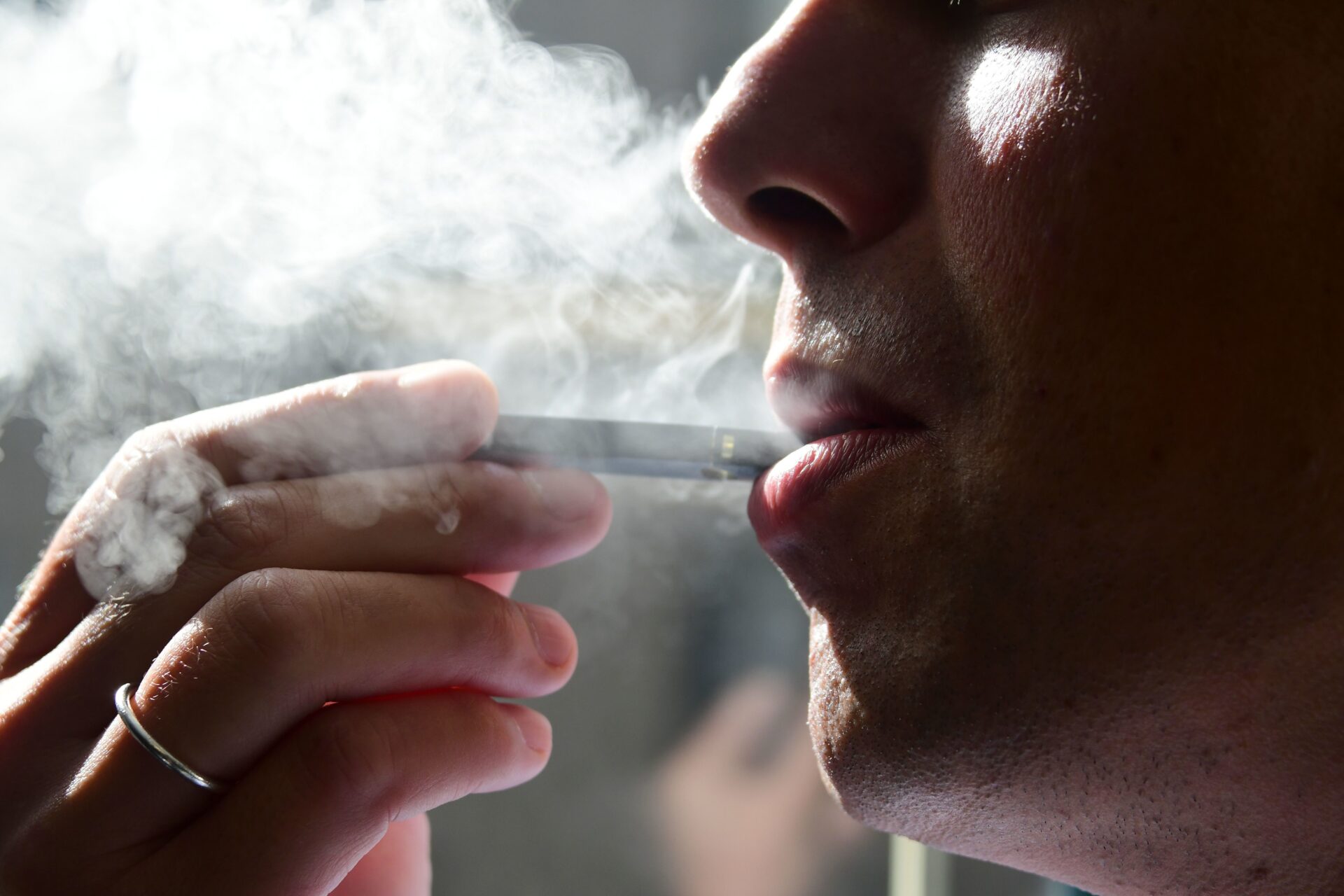During the 2023 West Virginia Legislative session, lawmakers considered two bills to lower the state’s smoking rates. Both bills were sent to Health and Human Resources Committees and neither moved any further.
Those bills were Senate Bill 84 and House Bill 2051.
Doug Hogan, the government relations director of the American Cancer Society Cancer Action Network (ACS CAN), worked directly with Sen. Tom Takubo, R-Kanawha, in writing Senate Bill 84.
“He’s carried that a couple of times for us,” Hogan said. “And obviously, you know, at this point, we would just like to get a hearing. Eighty-four is one that we really spent a lot of time on and we’re invested in.”
Tobacco companies spend $107.9 million per year to market their products in West Virginia, while the state allots just $445,000 to tobacco prevention and cessation programs in the operating budget.
“West Virginia has both the highest adult smoking rate and the highest high school tobacco use rate in the country,” Hogan said. “Those are two huge indicators that we’re not doing enough to provide fact-based tobacco control measures and education and programming within the state to try and break that cycle of generational tobacco usage. And so we were hoping that the legislature would increase the funding for those tobacco prevention programs here in the state, the governor’s task force recommended $16.5 million.”
According to the American Lung Association’s 2023 “State of Tobacco Report,” West Virginia lags behind when it comes to tobacco control policies. As a result, the state’s average smoking rates are 22 percent of adults and 40.6 percent of high school students.
“We’re trying to break that trend to break that generational tobacco usage,” Hogan said. “And that’s really why we were hopeful that we would see a significant increase in the amount of funding for the tobacco prevention programs in West Virginia. I mean, the evidence is clear.”
West Virginia continues to rank 50th in the nation when it comes to tobacco control and cessation programs.
